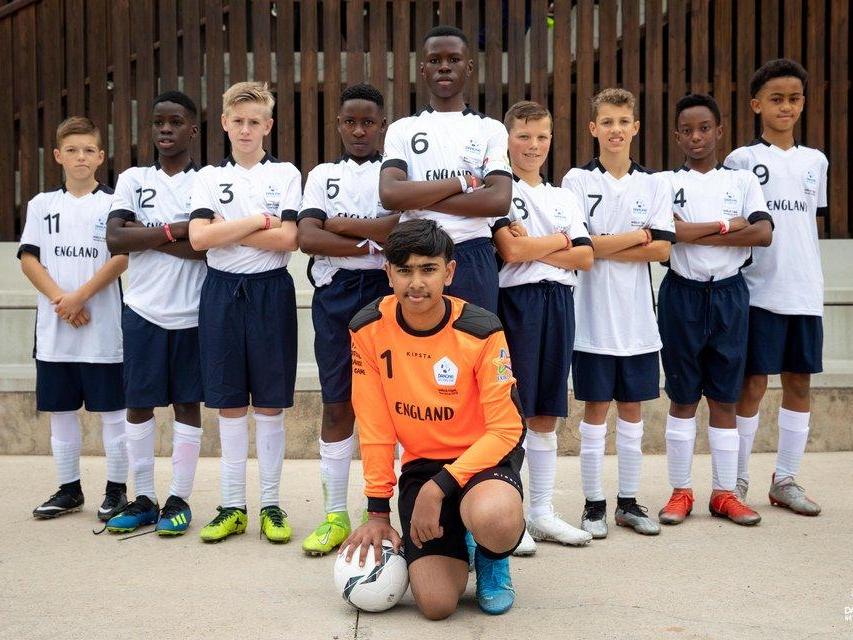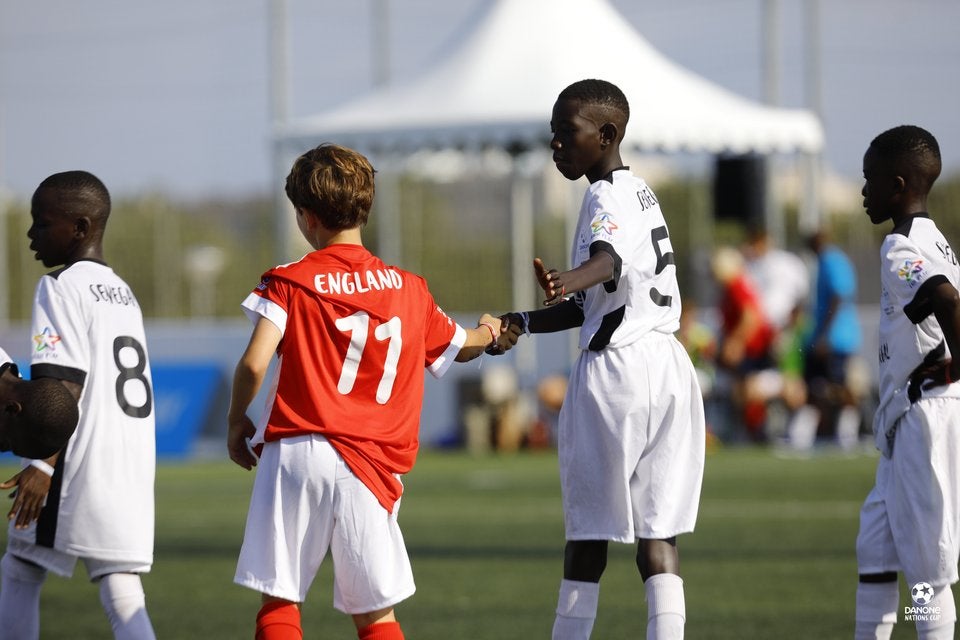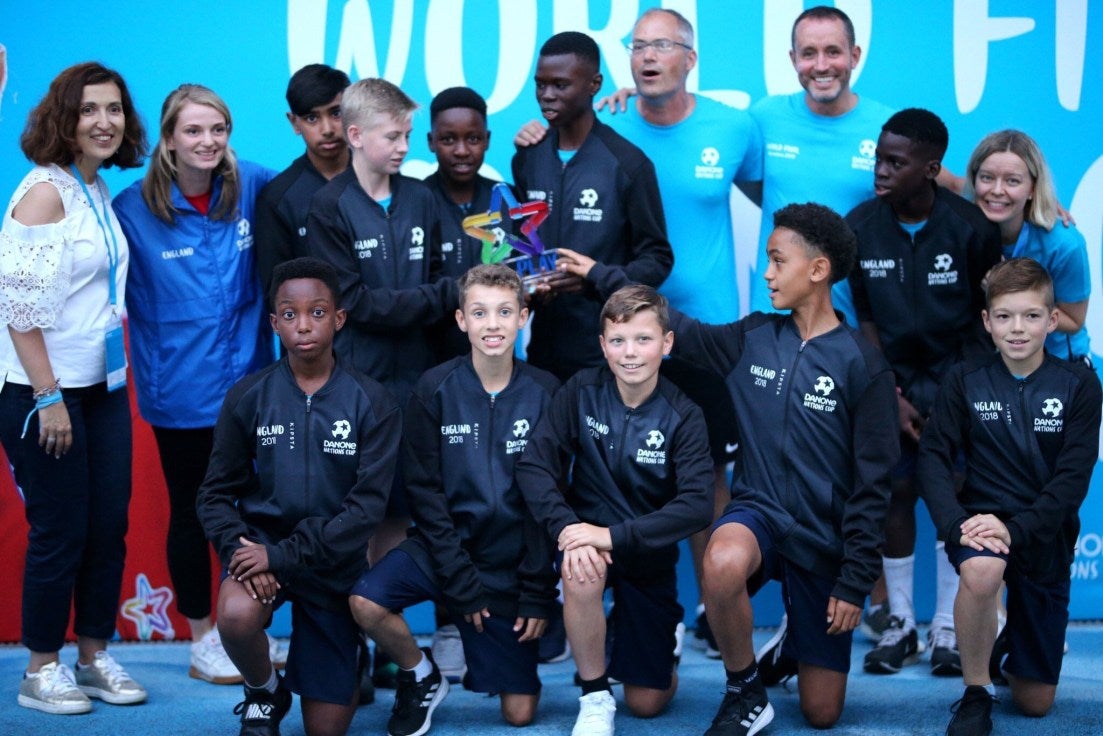The boys’ team from Newham who came to represent England and take on the world
The boys kept winning until they found themselves at the Danone Nations Cup – effectively a World Cup for kids – in Spain where what they discovered was part football tournament, part rich cultural exchange

Your support helps us to tell the story
From reproductive rights to climate change to Big Tech, The Independent is on the ground when the story is developing. Whether it's investigating the financials of Elon Musk's pro-Trump PAC or producing our latest documentary, 'The A Word', which shines a light on the American women fighting for reproductive rights, we know how important it is to parse out the facts from the messaging.
At such a critical moment in US history, we need reporters on the ground. Your donation allows us to keep sending journalists to speak to both sides of the story.
The Independent is trusted by Americans across the entire political spectrum. And unlike many other quality news outlets, we choose not to lock Americans out of our reporting and analysis with paywalls. We believe quality journalism should be available to everyone, paid for by those who can afford it.
Your support makes all the difference.When a team of 10-year-old footballers from Newham entered a local tournament last year, they began an extraordinary journey which would take them well beyond their east London borough. They got on a roll, winning the Essex finals, the south-east regional finals and the national finals against boys from Leeds. Their prize? The chance to play in the closest thing to a kids’ World Cup, staged over two days in Barcelona.
“We didn’t know about the tournament, we had no idea how big it was,” says their coach Paul Belcher, who works with Chelsea Football Club and coaches across schools in Newham, one of London’s most deprived boroughs. “We didn’t even know what we were qualifying for at the start, but then we had this incredible opportunity. Some of the boys had never been abroad before. Some had never even been on a plane.”
The Danone Nations Cup was established on the back of 1998 World Cup in France, and is fought annually by 22 countries across the globe in a boys’ and girls’ tournament. It is hosted in a different country each year – this year is Spain and next year it is set to be Indonesia. The knockout stages are based at a sporting complex just outside Barcelona before the finals in Espanyol’s stadium, and what takes place is part football tournament, and part something akin to a rich cultural exchange. The Senegalese boys come dancing in unison; not far away the Moroccan team are on their knees in prayer; on the pitch below a tiny Brazilian boy swamped in his yellow shirt shows off some mesmerising samba skills, attracting a small crowd as he rolls the ball across his chest, over his shoulder blades and back again.

For a group of boys from Newham, it is an eye-opening experience. “Every team brought something different, it was so much more than a tournament,” says Belcher. “In the group stage we played South Africa and they just seemed so happy to be there. The Japanese team were so polite and respectful. During breaks between games our boys became friends with the Romanian team. They all got on so well, so naturally. It made me think, when as adults do we become aware of cultures and ethnicities? The boys loved watching the girls play – they didn’t see girls or boys, they just saw footballers.”
For the most part, the spirit is one of genuinely uplifting camaraderie. Argentinian girls chant “Brazil! Brazil!” as they walk by their South American neighbours playing below them, and get big smiles and waves back. There is plenty of singing, dancing and laughing in Spain’s autumn sunshine – although there are some tears, too. In a stalemate quarter-final, a questionable late penalty awarded to Hungary left the Bulgarian boys distraught and a few outright furious.
Perhaps there’s something to be said for experiencing adversity, disappointment, even a miscarriage of justice. These are the life lessons youngsters must learn. In sport there is only one winner in the end, and so for most it is all about finding joy in the journey.

For Belcher it was an especially poignant few days. Between winning the national finals and arriving in Barcelona, many of his young stars had drawn wider attention. Some had even signed with professional clubs. “I knew it was the last time I’d see them all together,” he says.
England did not get out of their group, but they did take home a trophy. The tournament put great emphasis on respect and behaviour on and off the pitch, and they were delighted to win the fair play award. “The boys were so proud of that,” says Belcher. And it was not the only thing they took away. “The whole tournament taught us all a lot. We wanted to win, but the boys still appreciated the opportunity. Playing against other cultures, handing over the national pennants before kick-off... They got to keep their England tops afterwards – how many young kids get to represent their country?”
Join our commenting forum
Join thought-provoking conversations, follow other Independent readers and see their replies
Comments